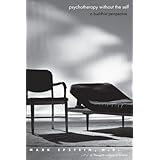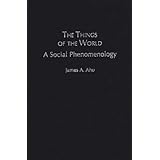
Average Reviews:

(More customer reviews)As a psychiatrist, I have yet to read a more illuminating book on how mental illnesses can develop, and how to help patients' to become free of them.
Existential Psychotherapy presents a theory of the existential forces that drive all human beings--knowledge of death, of our aloneness in the world, and of "meaninglessness" (the utter inconsequence of our one life in the entirety of the universe). It shows how these forces are powerful influences in shaping human mental health and illness.
Other reviewers here point out that the basic existential issues Yalom presents are well-known to academics and to many literate people who are exposed to them in that good, broad, liberal arts education we (still?) get in college. But what Yalom achieves in this book, has not to my knowledge been accomplished before (nor since): a presentation of these ideas to an audience of clinicians in a lucid, beautifully written, way that is salient to the daily practice of psychotherapy.
Yalom is a rare psychiatrist who is not only a master of the art of teaching and practicing psychiatry, but for this book, ventured into philosophy, literature, history, and sociology, and then integrated the wisdom each brings to the study of human nature, into a clear and cohesive whole, a beautifully written theory of the existential dimension of men's fears, drives, and actions, and how this dimension creates mental illness or health, depending on how each person handles it.
What is amazing is how such a book is now buried in the archives of (relative) obscurity, while others, recycling the same old tired ideas, reign on.
So what do these lofty insights in Yalom's book contribute that is unique and powerful to us lowly practitioners toiling daily in our offices in the (seemingly more banal) task of helping patients with daily crises, complaints, resistance to change, and painful repetitions of self-destructive life choices?
One very important tool: a true understanding of the power of existential concerns, not only in creating mental illness and self-destructive life paths, but, by shining a light on them-- capturing that elusive force of change: MOTIVATION. This force, and how to harness it to help patients overcome their suffering, has for me been one of my greatest challenges as a doctor. And one for which most books on psychotherapy have fallen short in helping me tackle.
In the sections "death" and "will", (two of the four main sections in the book), Yalom forges a path that I could follow, to help my patients free themselves of the fears that block motivation for change. In short, Yalom shows how the anxiety about, (and thus avoidance of) awareness of our death and aloneness, can cripple us into denial, and resistance to changing those of our behaviors that shield us from these truths. But, these very fears, when faced and reframed--as the awareness of one's finite limits, and of the freedom that comes along with one's aloneness, become extremely potent engines for change. Other peoples' judgements, and fear of failure, lead us to believe that the human "judges" are the most important threat in our lives. But in Yalom's world, these feared judgements pale in comparison to the the consequences of inaction. When we live with acute awareness that we waste our only life when we are beholden to judges who are after all, mortal and alone just like us, this can shake us up to MOVE and LIVE, in this finite life, in a way other insights cannot.
This example of how avoidance of existential fears leads to anxiety, low self-worth, and depression, is but one vignette in this book. Yalom applies his theory to the gamut of mental illness, and includes discussion of how narcissism, perversions, obssessions, masochism, sadism, ...the list goes on, are fueled by existential concerns. Yalom argues that they all boil down to one of two main strategies we humans employ to "forget" Death, Aloneness, and Meaninglessness: Either we escape too much into the protective cover of the GROUP, and become mindless group robots who drone through life until illness, or loss forces us to suddenly face our mortality, at which point many of us panic, or become depressed, OR, we get sucked into this defiant delusion : "I am SPECIAL"...smarter, more rebellious, unfettered by the social conventions of meek men, thus free of death's jaws". This reaction then can lead to reckless, impulsive, pseudo "powerful" behaviors that are often the fuel of many "acting out" mental problems: addiction, sociopathy, sadism, and narcissism.
Enough of my words-read and feel the power of Yalom's words in this great book.
Click Here to see more reviews about:
Existential PsychotherapyExistential therapy has been practiced and continues to be practiced in many forms and situations throughout the world. But until now, it has lacked a coherent structure, and analysis of its tenets, and an evaluation of its usefulness. Irvin Yalom, whose Theory and Practice of Group Psychotherapy has rendered such a service to that discipline since 1970, provides existential psychotherapy with a background, a synthesis, and a framework.Organized around what Yalom identifies as the four "ultimate concerns of life"-death, freedom, existential isolation, and meaninglessness-the book takes up the meaning of each existential concern and the type of conflict that springs from our confrontation with each. He shows how these concerns are manifested in personality and psychopathology, and how treatment can be helped by our knowledge of them.Drawing from clinical experience, empirical research, philosophy, and great literature, Yalom has written a broad and comprehensive book. It will provide an intellectual home base for those psychotherapists who have sensed the incompatability of orthodox theories with their own clinical experience, and it opens new doors for empirical research. The fundamental concerns of therapy and the central issues of human existence are woven together here as never before, with intellectual and clinical results that will surprise and enlighten all readers.
 Get 25% OFF
Get 25% OFF
Click here for more information about Existential Psychotherapy





